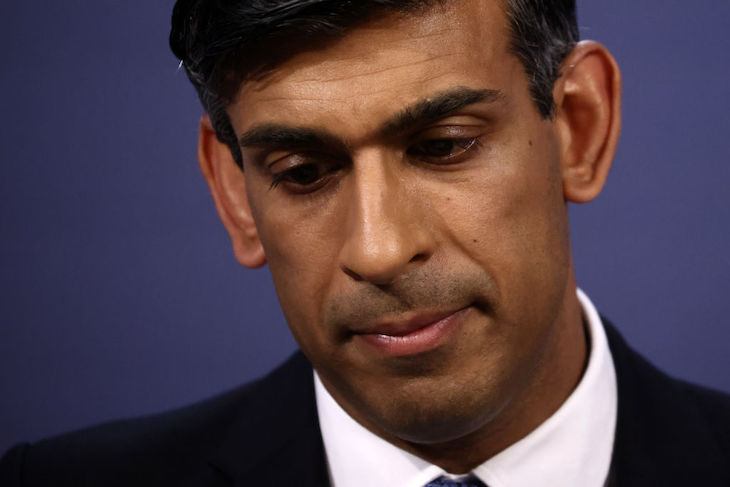The Tories have avoided total wipeout in last night’s triple by-election. Rishi Sunak dodged the embarrassment of becoming the first Prime Minister in 50 years to lose three by-elections in a single day. While the Lib Dems won Somerton and Frome and Labour secured victory in Selby and Ainsty, the Conservative candidate in Uxbridge, Steve Tuckwell, managed to hold onto Boris Johnson’s old seat with a much reduced majority of 495 votes.
The result in Selby and Ainsty meanwhile, where Labour candidate Keir Mather took the seat, was the biggest majority the Labour party has ever overturned in a by-election: the Tories had previously held the seat with a majority of over 20,000.
The Government became hopeful of its Uxbridge success in the evening when one Tory source told me Labour had begun ‘mobbing’ the constituency at the last minute to get the vote out. But any relief at the result is tempered by the swing of nearly 24 per cent in Selby. The last time Labour were achieving swings of that scale was during the 1992-1997 parliament. This is certainly reason to be cheerful for Sir Keir Starmer. The last time the Liberal Democrats won four by-elections from the Conservatives in a parliament was also the 1992-1997 parliament. A happy Ed Davey too, then.
As ever during by-elections, turnout was poor. In 2019, over 70 per cent put a cross in a box in Selby and Ainsty; yesterday that collapsed to just 45 per cent. The fall in Uxbridge was even more stark going from 76 per cent in 2019 to just 44 per cent yesterday with Somerton and Frome seeing a similar fall in turnout.
There was evidence of tactical voting in all three seats. The Labour vote fell 10 per cent in Somerton and Frome helping the Lib Dems to victory, while that Lib Dem vote was down 5 per cent in Selby and Ainsty and in Uxbridge too.
Taking the three results together the average drop in Tory vote was 21 per cent. This is just above the gap in the national polling average, which is currently 19-20 points.
Looking at each constituency (all three of which voted for Brexit) it is perhaps worth noting that Uxbridge has the highest immigrant population, with a third of constituents born overseas, compared with less than 10 per cent in the other two by-election seats. This will perhaps be picked up on by the Tories as net migration looks set to remain near record highs and the Government looks to appeal to hard working groups who are often natural fits for the Conservative party.
Opposition to Sadiq Khan’s Ulez scheme certainly played its part in Labour’s failure in Uxbridge but it perhaps shouldn’t be taken as a wider sign of a green backlash. In Selby & Ainsty, the Green vote was up 2 per cent; and in Somerton and Frome, the Greens achieved over 10 per cent of the vote with an increase of over 5 points on the last election.
Overall, despite any tentative Tory relief at the Uxbridge result and a slightly less jubilant Keir Starmer the picture points still to a Labour victory at a General Election possibly in 18 months' time. And as Katy Balls points out in this week’s magazine, Rishi Sunak starts his summer holiday in the same position he found himself in after Christmas: some 20 points behind in the polls.







Comments